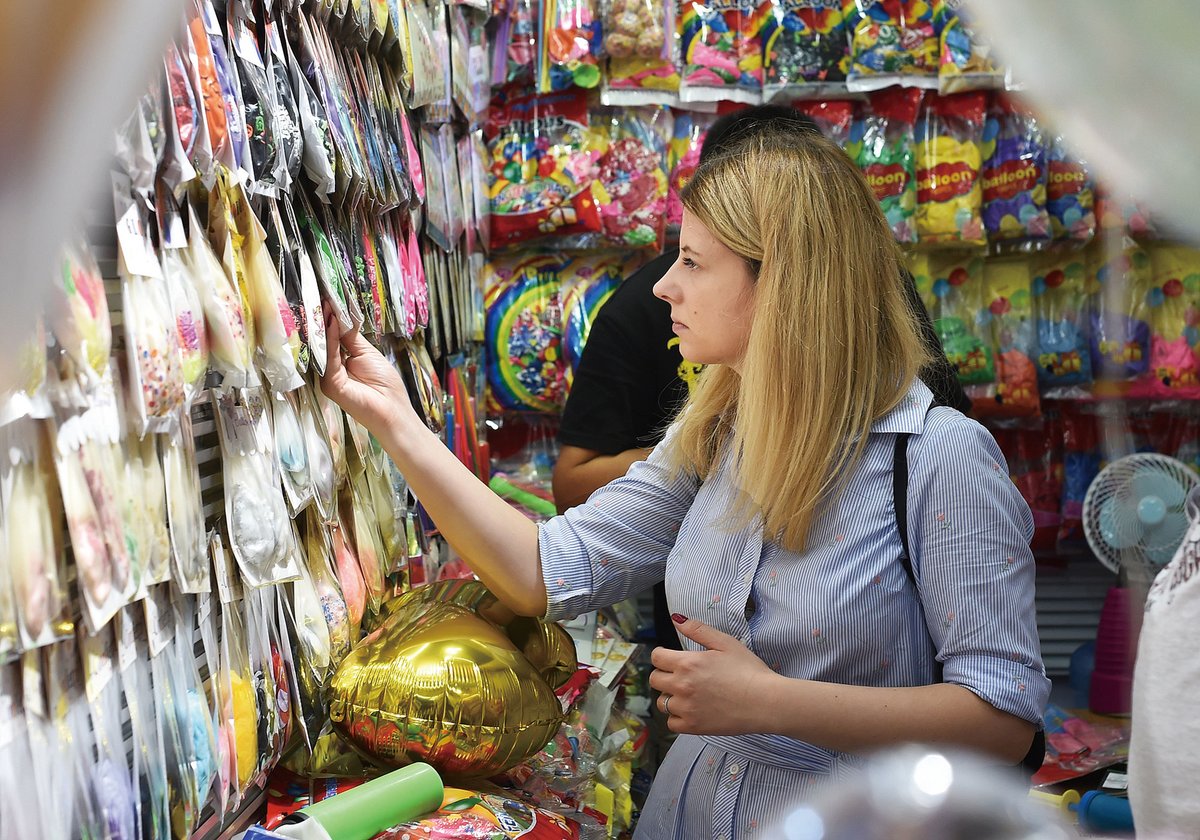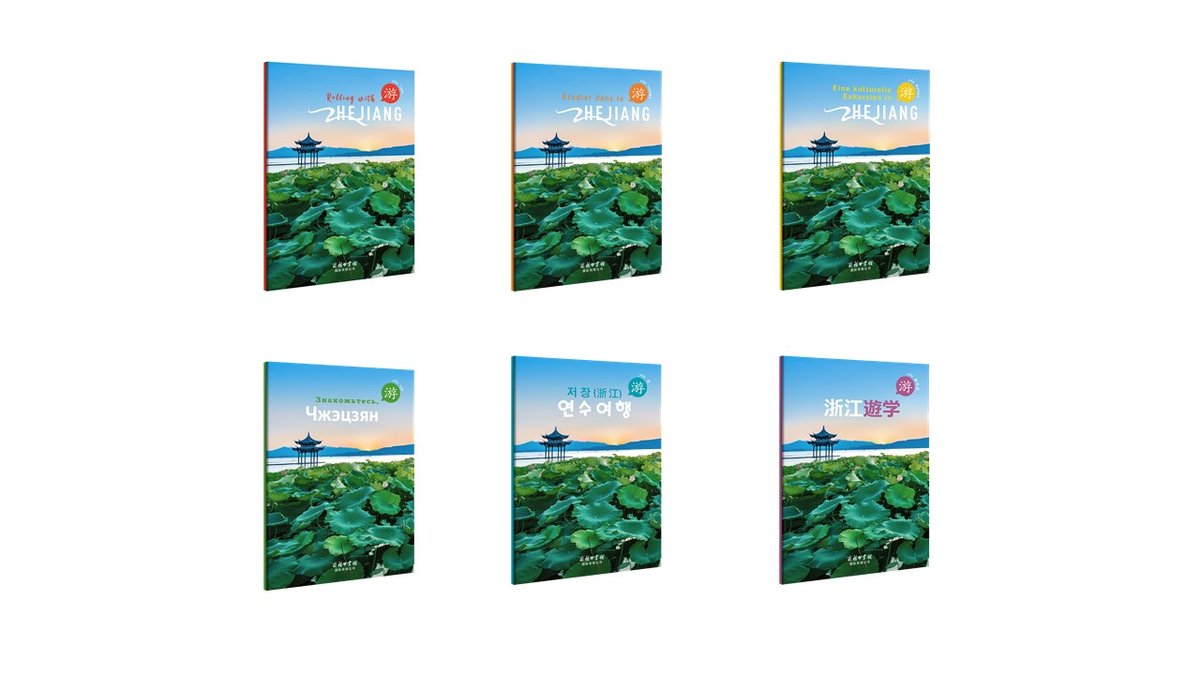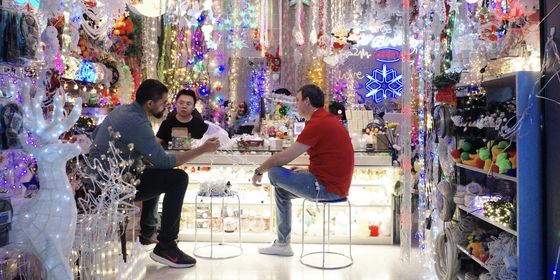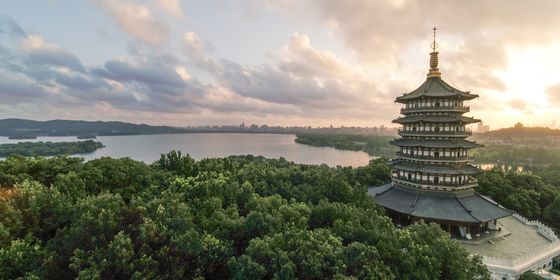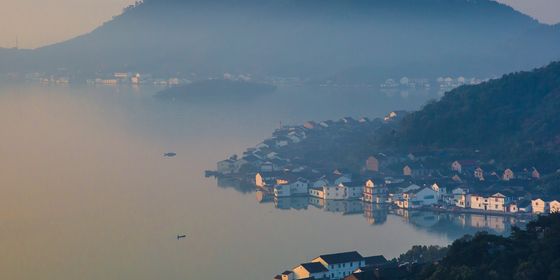How the small eastern Chinese town of Yiwu became the largest commodities market in the world
In the first century BCE, when Zhejiang was just a frontier, a poor young man named Yan Wu lived there with his father. One day, Yan found an injured crow by the side of the road, took it home, and nursed it back to health.
Years later, Yan’s father died. As Yan was too poor to afford a funeral, he dug the grave himself. After three days and three nights, he collapsed from exhaustion and grief. Suddenly, a flock of crows appeared, and helped Yan dig the grave with their beaks. The story of the filial Yan and loyal birds spread all over the land, and the spot was dubbed Wushang (乌伤, “sorrow of crows”) or Wuxiao (乌孝, “filial piety of crows”), later changing to Yiwu (义乌, “righteousness of crows”).
Though a flock of crows hardly seems like a good omen, fortune has continued to smile on Yiwu ever since. This mountainous region of central Zhejiang had always depended on trade due to a lack of arable land. The city’s star really rose in 1982 when, after Deng Xiaoping’s economic reforms, a wholesale market dating back to the 1700s was reopened in the area, eventually becoming the Yiwu International Trade Market (义乌国际商贸城), the largest commodities market in the world.
Today, Yiwu is a regional hub of light manufacturing and consumer goods trading, and it is still a destination for travelers from around the world. The three-square-kilometer market sees 200,000 visits per day, with importers hailing from Asia, the Middle East, Europe, and Africa. Some stay only long enough to stuff suitcases full of clothing and trinkets to sell back home, but around 13,000 permanent foreign residents have put down roots in the city as traders, business consultants, international school teachers, and small business owners.
As a supplier of consumer goods to around 206 countries and regions, Yiwu has a disproportionate influence on the world. It’s known as China’s “Christmas Village,” as around 60 percent of the world’s Christmas decorations are produced in some of the 600 factories and workshops surrounding the city, many of them dusted by red glitter all year round. The “Yiwu Index,” a price index that reflects commodities prices around the world, has also become a political bellwether—local business owners supposedly predicted Donald Trump’s victory in the 2016 US Presidential Elections due to the sheer number of merchandise they shipped for his campaign.
Though the utilitarian Yiwu lacks the tourist cachet of its Zhejiang neighbors, visitors are often pleasantly surprised by its international vibe, with a plethora of foreign cuisines, vivid nightlife, and a cornucopia of languages spoken in some of its neighborhoods. The city is well-equipped to host foreign visitors, putting on around a dozen international trade exhibitions a year. The night market on Northern Chouzhou Road, with Middle Eastern traders smoking pipes and sampling delicacies in front of coffee shops by the sidewalk, is a unique sight found nowhere else in China.
Excerpt taken from Rolling in Zhejiang, TWOC’s new booklet on tourism and language in Zhejiang province available in English, French, German, Russian, Korean, and Japanese. Get your digital copy today from our WeChat Store or iTunes Store!







